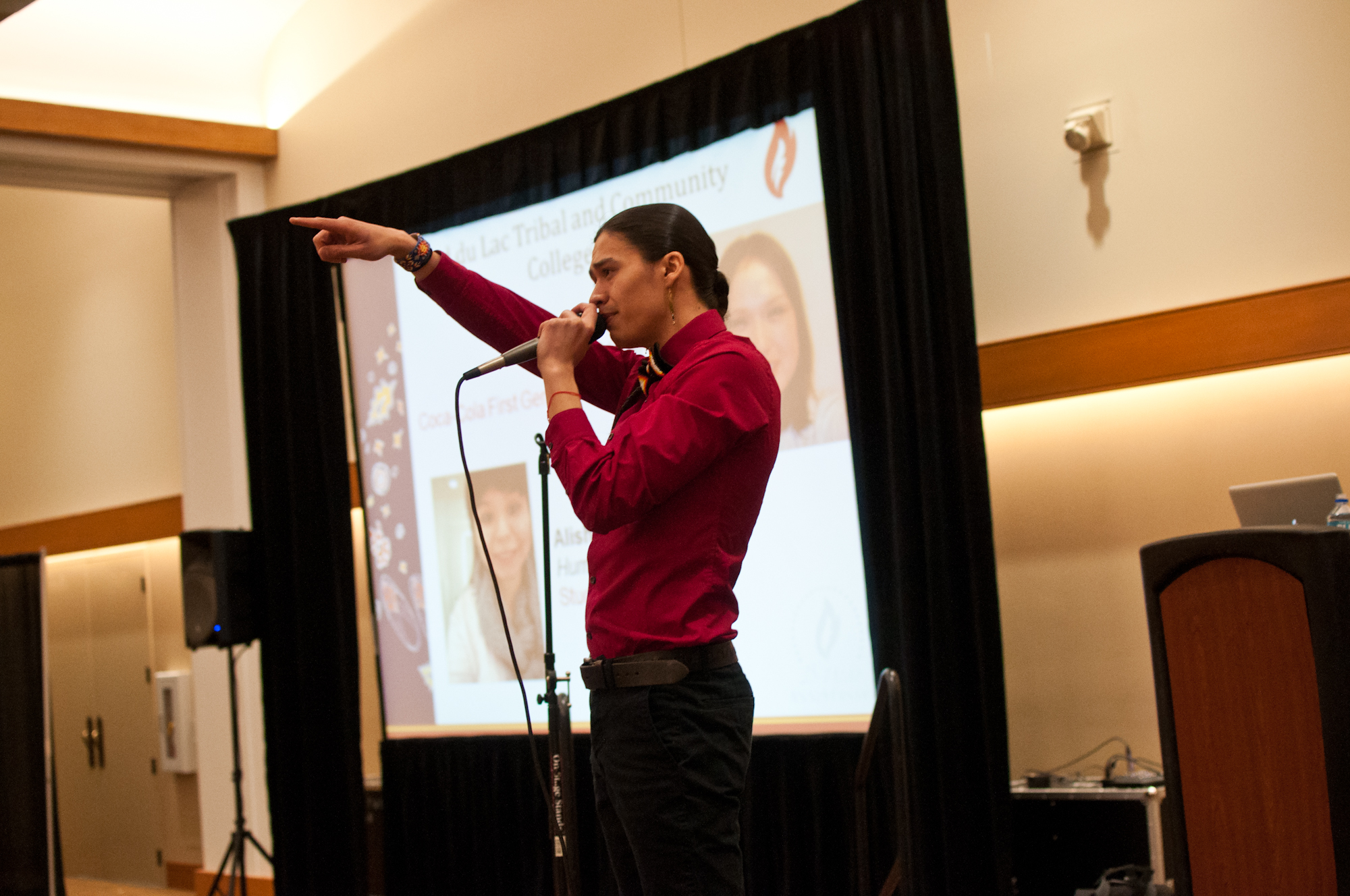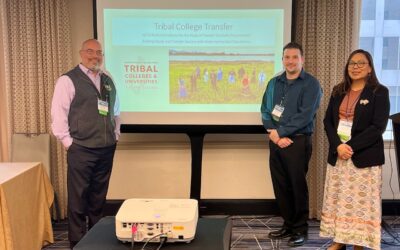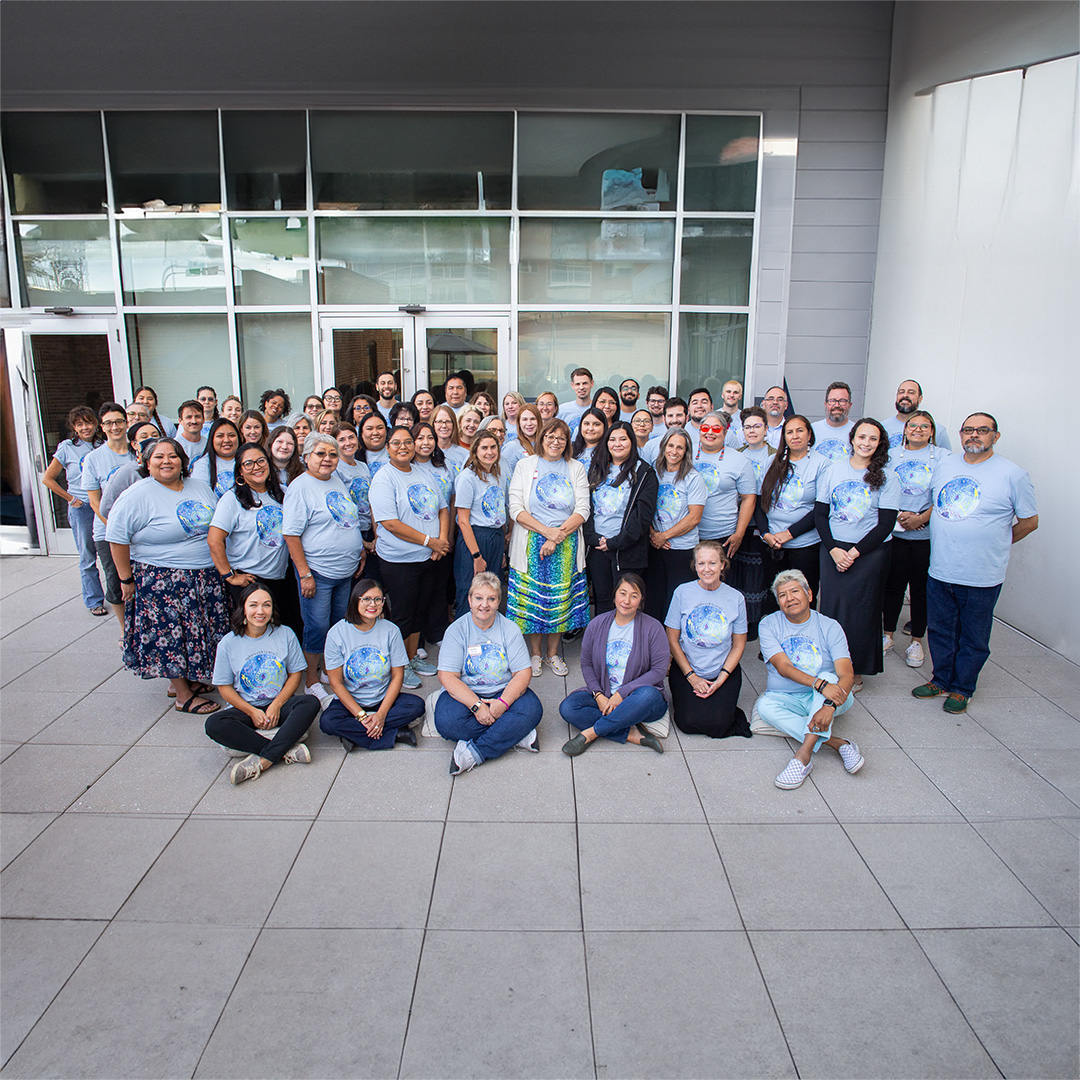You can find answers to the most frequently asked questions about the American Indian College Fund’s scholarships below.
Where and how do I apply?
Visit our scholarships page and evaluate the scholarship categories (undergraduate attending a tribal college, undergraduate attending a mainstream college, or graduate student) to click “How to Apply” begin the application process.
When are applications open?
Full Circle scholarship applications are open from January 1 to May 31st each year.
TCU scholarship applications open on August 1 for the fall semester and January 1 for the spring semester every year, although deadlines vary by college. Contact your financial aid office at your college for details.
When will I be notified if I am awarded a scholarship?
All applicants will receive an email by early August to notify them if they have been awarded a scholarship. Letters will also be mailed to all recipients at that time.
Students may also log into the online application system at any time to check the status of their application under the “Applications” tab. “Pending” indicates that no decision has been made yet; the status changes to “Awarded” or “Not Awarded” when selections are complete. For the Full Circle Scholarships program, this is generally by early August at the latest; for TCU scholarships, the date varies by school. Contact your financial aid office for details concerning when they have awarded scholarships.
Is scholarship eligibility based on blood quantum (blood degree or percentage)?
No, your scholarship eligibility is determined by your enrollment in a state or federally recognized tribe or the ability to prove descendancy from a parent or grandparent who was/is an enrolled member.
Which tribal members are eligible to apply for a scholarship?
Any member of a state or federally recognized tribe or Alaska Native village is eligible to apply for a scholarship. You can also be eligible by proving descendancy from a parent or immediate grandparent that is/was an enrolled member of a state or federally recognized tribe or Alaska Native village.
How would I be eligible for a scholarship based on descendancy?
To be eligible based on descendancy, you must provide tribal enrollment documentation of your parent(s) or immediate grandparent(s) and birth certificates that connect you to the parent/grandparent.
More information on how to prove descendency can be found here.
Am I eligible if I’m a Canadian citizen or a member of a Canadian tribe (i.e. First Nations, Blood Tribe, etc.)?
No, unless you are attending an American college and are eligible under the terms of the Jay Treaty. More information about the Jay Treaty can be found here.
What is the difference between a TCU and a mainstream college?
TCU refers to tribal colleges and universities, which are generally tribally owned and operated. There are currently over 33 accredited TCUs across the country, as shown in this map.
A mainstream college or university is any educational institution not tribally owned; this includes universities, colleges, community colleges, and other not-for-profit educational institutions.
What is the difference between the TCU scholarship program and the Full Circle scholarship program?
The TCU scholarship program is for tribal college students. It is administered each semester by the financial aid office of each tribal college and university. This means that the deadlines and requirements vary according to each TCU. Contact your TCU financial aid office for more information.
The Full Circle scholarship program is for both TCU and mainstream students. This program provides academic year-long scholarships (two semesters) and is administered by the American Indian College Fund. Students must be enrolled full-time and have a minimum 2.0 GPA.
There are also graduate scholarships available through the Full Circle scholarship program.
How do I apply for a specific scholarship (APS, Coke, Toyota, Nissan, etc.)?
By submitting your TCU and/or Full Circle scholarship application, you will automatically be considered for all the programs you are eligible for based on the information provided in your application.
Does my school make me eligible to apply?
If your school is a tribal college or a public or private (non-profit) mainstream college or university, you are eligible to apply. If you are not sure if your private school is a not-for-profit institution, check here. For-profit college and university students are not eligible.
What does the application require?
The application requires you to submit the information and essay electronically and upload the necessary documents.
Is my scholarship continuous/renewable?
No, each student must resubmit an application every year, regardless if they were awarded a scholarship the previous year.
What should I put in the essay?
To write a great essay, be sure to answer each of the three questions that are listed within the application. Use professional language and make sure to use the spell/grammar check feature provided. Other tips for writing a winning scholarship essay can be found here.
What if I don’t see my tribe, major, or school as an option in the drop down menu when I type it into the search bar?
If this happens, you need to choose “Other” from the drop down menu and then manually type it in. We try to have the majority of possible tribes, majors, and schools available however, so double check the spelling before choosing “Other.”
Does my transcript(s) have to be official?
No, your transcript can be unofficial but it must contain your cumulative GPA, not just the term GPA.
Can I leave the GPA box blank if I am just out of high school or finished high school many years ago?
No, the GPA box must be filled with your most recent cumulative GPA, even if that is from a high school transcript. Whether you graduated high school a few months ago or a few decades ago, you need to use your most recent or last cumulative GPA, which can be found on your transcript.
How can I find my cumulative GPA?
Most schools have an online portal that will show you this information on your transcript; ask your financial aid office for details. In addition, you can calculate your current and cumulative GPA with this online tool.
Do I need to turn in a new transcript after the semester is over?
No, your application will be evaluated based on the information you provided at the time of submission, however, if being considered for an award, students attending non-tribal colleges and universities will be asked to send in a copy of their final spring transcript and fall class schedule to verify eligibility. TCU students’ documents will be verified directly with their school.
Visit our scholarships page and evaluate the scholarship categories (undergraduate attending a tribal college, undergraduate attending a mainstream college, or graduate student). Click here to view a list of application tips, or “How to Apply” begin the application process.







